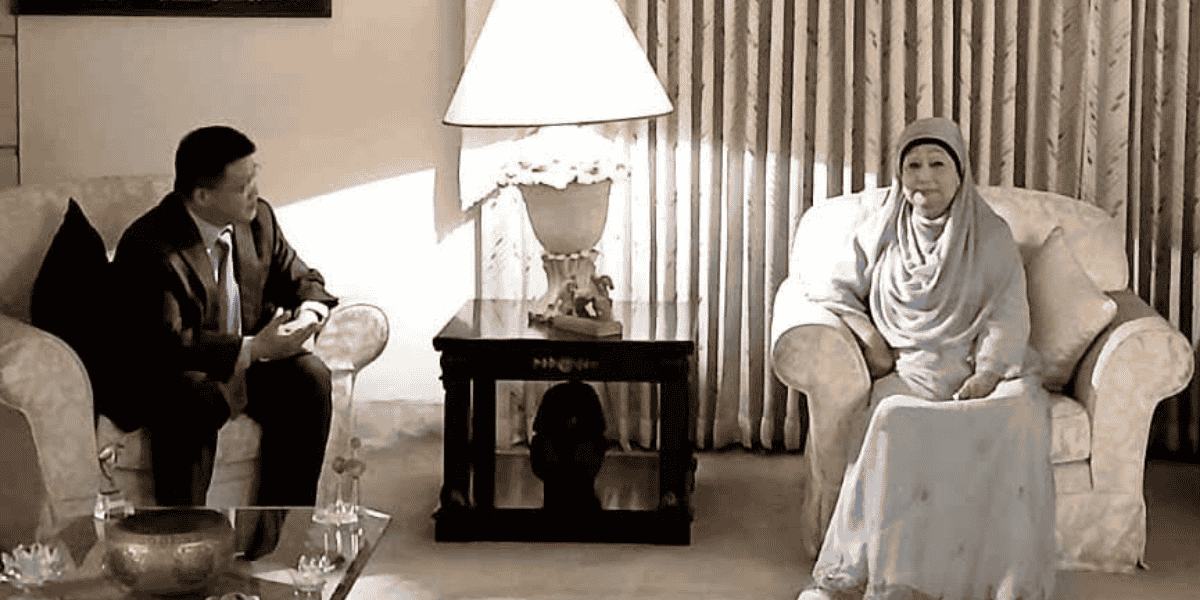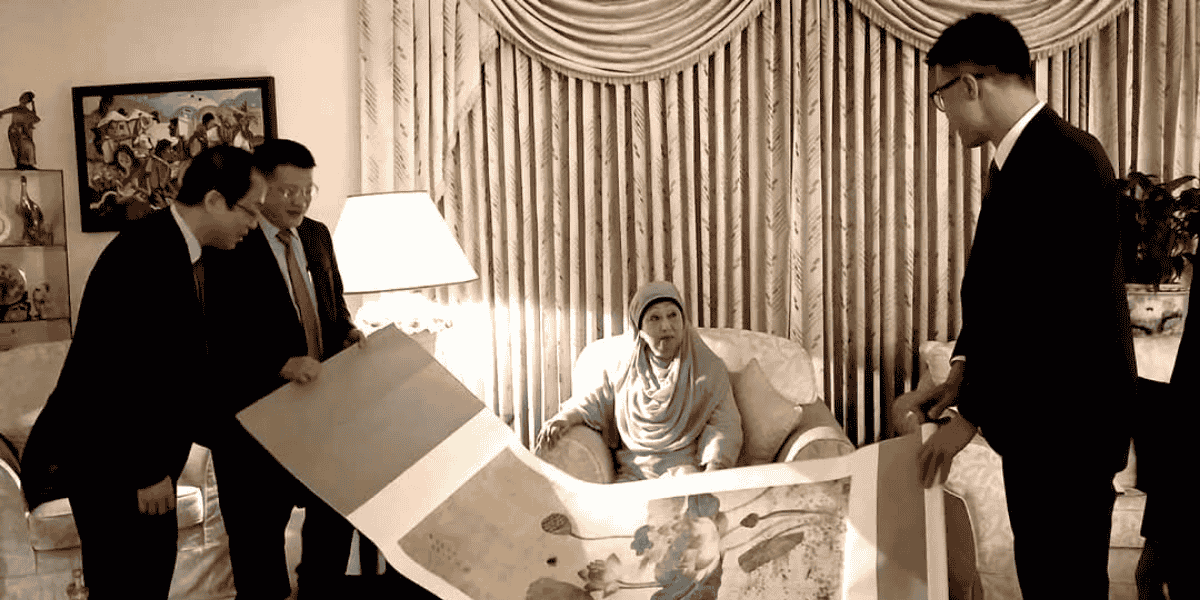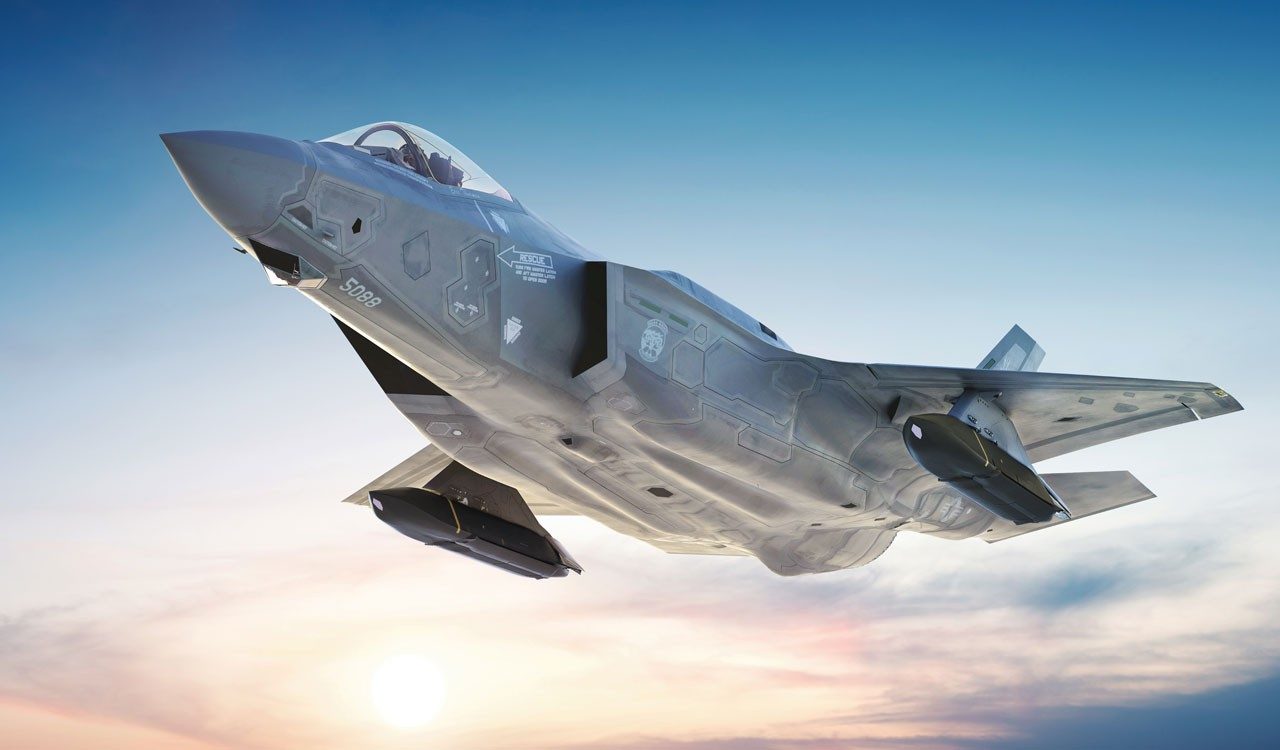OPED By: Salah Uddin Shoaib Choudhury
On November 25, the day Hindu monk and leader of “Sammilito Sanatan Jagoron Jote” was arrested, the Chinese Embassy in Dhaka hosted a reception for leaders of Islamist political parties, including representatives from Bangladesh Jamaat-e-Islami, Hefazat-e-Islam Bangladesh, Khelafat Majlis, Bangladesh Khilafat Andolan, and Nizam-e-Islam Party.
During this event, Chinese Ambassador Yao Wen stated, “rof changes in domestic or regional circumstances, the China-Bangladesh relationship has remained steadfast, progressing steadily in the right direction.”
He further said, “This stable partnership has become a pillar of regional peace and prosperity. China-Bangladesh friendship is deeply rooted in the community and benefits both nations”.
Earlier, the Chinese envoy visited the office of Jamaat-e-Islami (JeI) in Dhaka, where he described JeI as a “well-organized political party.”
Jamaat’s Ameer Dr Shafiqur Rahman, accompanied by the ambassador, informed the media that discussions included matters of mutual interest, including education, culture, and development.
The two sides exchanged in-depth views on China-Bangladesh relations, inter-party exchanges and cooperation, and other issues of common concern.

Ambassador Yao said that, at present, Bangladesh is at a historical crossroads and said, “China is committed to deepening exchanges and cooperation with the Interim Government, all political parties, and all walks of life in Bangladesh to consolidate the traditional friendship between the two countries and promote the continuous development of the China-Bangladesh comprehensive strategic cooperative partnership, to bring more benefit to the two countries and the two peoples.”
Ameer Dr Shafiqur Rahman appreciated China’s contribution to Bangladesh’s economic and social development.
He reiterated Jamaat’s firm support for the One-China Principle and its willingness to strengthen cooperation between the two countries. He also requested China to be more active in investment and the rehabilitation of Rohingyas.
Jamaat’s Nayeeb-e-Amir Mujibur Rahman, Dr Syed Abdullah Md Taher, Secretary General Mia Golam Porwar, and other senior leaders were present at the meeting.
Meanwhile, leaders of Jamaat-e-Islami are currently visiting China at the invitation of the Communist Party of China (CPC). The 14-member delegation from Jamaat-e-Islami consists of its Nayeb-e-Amir Syed Abdullah Mohammad Taher.
Earlier, four leaders of the Bangladesh Nationalist Party (BNP) paid a 10-day visit to China from November 7 to 16 at the invitation of the Communist Party of China (CPC).
The delegation was led by the party’s vice chairman, Asaduzzaman Ripon, joint secretary general Habibun Nabi Sohel, organizing secretary Anindya Islam Amit, and joint secretary of Jatiyatabadi Krishak Dal Mahmuda Habiba.
Following Sheikh Hasina’s fleeing from the country on August 5, China immediately switched sides to the Bangladesh Nationalist Party, Jamaat-e-Islami, and other Islamist parties in the country, along with Hefazat-e-Islam, sensing these were the future parties in power.
During Bangladesh’s war of independence in 1971, China vehemently opposed Dhaka’s independence and openly sided with Pakistan.
From a diplomatic source, it is learned that Beijing wants to sign an MoU with BNP and Jamaat to build a communication bridge between these parties and the Communist Party of China (CPC).
One key reason behind such an MoU is to ensure China’s growing influence in Bangladesh and its economic and strategic interests.
China is actively lobbying for a contract for a seaport project. Media reports said that China is set to return to Mongla seaport development as Bangladesh’s current interim government may allow Chinese investment in the BDT 60.15 billion (US$0.5 Billion) upgrade project.
The Mongla Port Authority has recently sought approval for the China-funded project, thus resuming the once-stalled bid.
The deposed Sheikh Hasina government put the project on hold in September 2023, allegedly due to “geopolitical considerations.”

In 2020, the previous government had allowed Indian financial support for a separate project to upgrade the Mongla seaport, which is now gaining prominence with China’s major communications infrastructure developments in the region.
The Mongla Port Authority (MPA), under the Shipping Ministry, has been implementing the BDT 60.15 billion project to upgrade the port since 2020, with part financing of BDT 44.59 billion from an Indian loan.
As the Bay of Bengal is a critical area for India’s defense interests, China is frantically trying to get a few strategic projects from the current interim government led by Muhammad Yunus in cooperation with major Islamist parties, including BNP and Jamaat.
In 2018, China overtook the US as Bangladesh’s largest foreign direct investor, and China Harbour Engineering Company started developing a 750-acre industrial park in Chittagong, an important port city. In exchange for its approximately US$10 billion investment, China will hold a 70 percent share of the industrial park.
It may be mentioned here that in August 2008, a Memorandum of Understanding (MoU) was signed between the Communist Party of China (CPC) and Indian National Congress (INC) in the presence of Chinese leader Xi Jinping, former INC chief Sonia Gandhi, and her son Rahul Gandhi (who now heads the party).
Although the INC leadership has kept the contents of this MoU secret, it is speculated that under this MoU, the Indian National Congress entered into a partnership with the Communist Party of China to work in unison on bilateral, regional, and international issues. Following the signing of this MoU, the ruling NDA coalition has repeatedly accused INC of supporting China on critical national security issues.
With China’s growing initiatives to strengthen relations with major Islamist and anti-India parties like the BNP and Jamaat, Beijing will likely try to cash in on the Muhammad Yunus administration’s anti-India stand by further expanding China’s geopolitical and economic interests in Bangladesh.
Beijing will also try to ink some geostrategic and military agreements with the current regime in Bangladesh. In that case, China’s long-standing ally, Pakistan, will also benefit and expand its presence in Bangladesh.
However, such arrangements may come under scrutiny once Donald Trump assumes office on January 20, 2025.
- Salah Uddin Shoaib Choudhury is an internationally acclaimed multi-award-winning journalist, writer, research-scholar, and Editor, Blitz. He regularly writes for local and international newspapers.
- VIEWS PERSONAL OF THE AUTHOR
- Follow him on X @Salah_Shoaib




